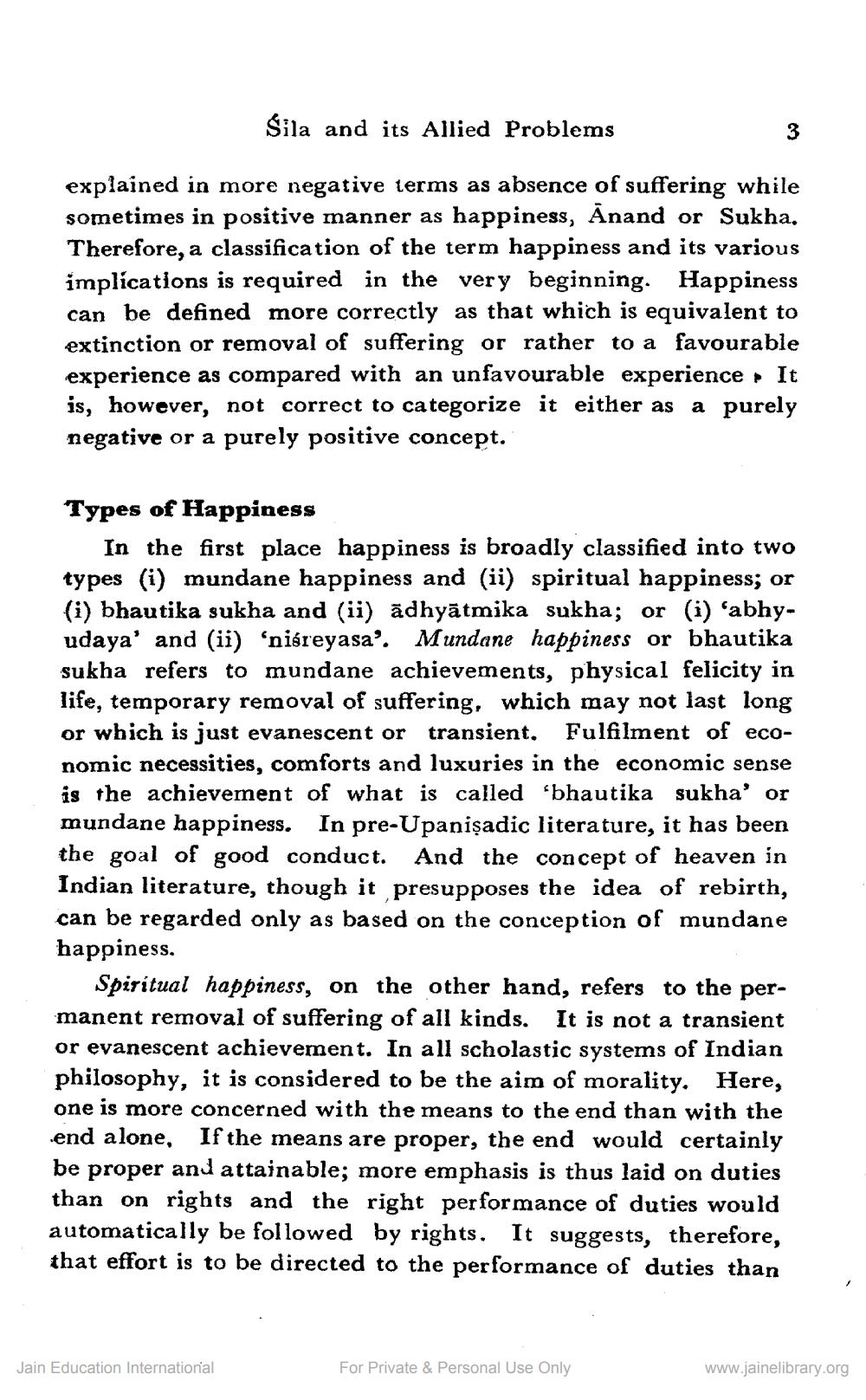________________
Sila and its Allied Problems
explained in more negative terms as absence of suffering while sometimes in positive manner as happiness, Anand or Sukha. Therefore, a classification of the term happiness and its various implications is required in the very beginning. Happiness can be defined more correctly as that which is equivalent to extinction or removal of suffering or rather to a favourable experience as compared with an unfavourable experience. It is, however, not correct to categorize it either as a purely negative or a purely positive concept.
Types of Happiness
In the first place happiness is broadly classified into two types (i) mundane happiness and (ii) spiritual happiness; or (i) bhautika sukha and (ii) ādhyātmika sukha; or (i) 'abhyudaya' and (ii) 'nibreyasa'. Mundane happiness or bhautika sukha refers to mundane achievements, physical felicity in life, temporary removal of suffering, which may not last long or which is just evanescent or transient. Fulfilment of economic necessities, comforts and luxuries in the economic sense is the achievement of what is called "bhautika sukha' or mundane happiness. In pre-Upanişadic literature, it has been the goal of good conduct. And the concept of heaven in Indian literature, though it presupposes the idea of rebirth, can be regarded only as based on the conception of mundane happiness.
Spiritual happiness, on the other hand, refers to the permanent removal of suffering of all kinds. It is not a transient or evanescent achievement. In all scholastic systems of Indian philosophy, it is considered to be the aim of morality. Here, one is more concerned with the means to the end than with the end alone, If the means are proper, the end would certainly be proper and attainable; more emphasis is thus laid on duties than on rights and the right performance of duties would automatically be followed by rights. It suggests, therefore, that effort is to be directed to the performance of duties than
Jain Education International
For Private & Personal Use Only
www.jainelibrary.org




